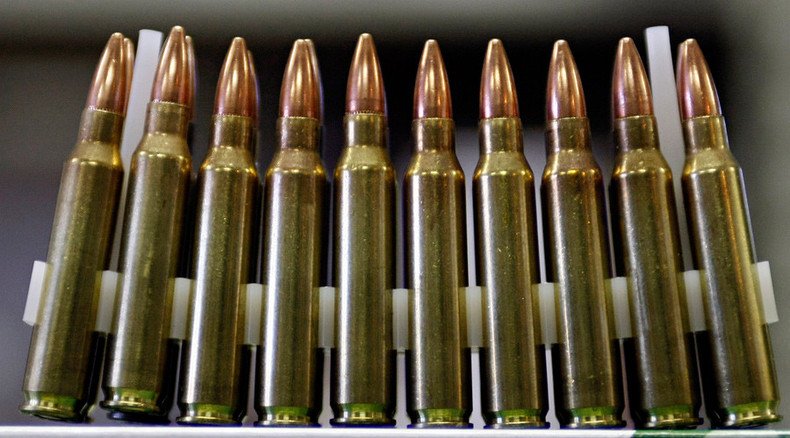‘One-way street’: US urged to buy more British weapons

Britain’s arms trade with the United States is a “one-way street,” Minister of State for Defence Procurement Philip Dunne has said, urging the US to buy more UK-built weapons.
Dunne told reporters during his first visit to the US since the general election there was a trade imbalance between the two nations.
He claimed he raised the issue with the US Defense Undersecretary during his trip.
“Trade often seems to go largely in one direction. Put simply, we buy rather more from you than you buy from us.”
The minister said he told his US counterpart more could be done to leverage the two countries’ closely-linked defense industries.
The US authorized more than $4.5 billion (£2.8 billion) in sales of military equipment and services to the UK last year, according to a State Department report.
By contrast, Britain authorized export licenses to the US of arms worth £2.5 billion ($3.9 billion) over a five-year period from 2010 to 2015, according to Campaign Against the Arms Trade (CAAT).
Despite the large disparity, the US is Britain’s third largest customer for military supplies after Saudi Arabia and France.
CAAT spokesman Andrew Smith speculates the discrepancy could be down to the size of each country’s military industries.
“This could be because of the relative size of each country and its arms trade. The US is the biggest arms exporter in the world, with just below one third of global arms sales. Russia is in second place with 27 percent,” Smith told RT.
Rather than seek to rebalance the trade relationship, Smith said the UK government should end its role as a global arms exporter.
“For a long time UK foreign policy has been linked closely to that of the US, which has had deadly consequences for the people of Iraq and across the region. The government should be investing in sustainable industries, not continuing in its role as a global arms dealer,” he said.
Dunne also met with US Deputy Defense Secretary Robert Work to discuss Britain’s commitment to spending 2 percent of its GDP on its defense budget and the cooperative development of the F-35 fighter jet.
UK arms exports to Middle East continue unabated, new gov't figures show. #thisisnotokhttps://t.co/w78geYUbI1pic.twitter.com/K2ZQBAJzqk
— CAAT (@CAATuk) July 15, 2015He welcomed news that the US Marine Corps was likely to soon announce whether the F-35 is ready for combat.
The controversial fighter jet has been beset with delays and spiraling costs, prompting senior officials to brand the plane a “joke.”
When asked by the Independent whether the F-35 would be on patrol in UK skies in three years’ time, Sir Nick Harvey, who served as the Minister of State for Armed Forces from 2010 to 2012, rejected the possibility.
“Not a cat in hell’s chance,” said Harvey. “I don’t recall ... having heard anyone suggesting that these things could be used in combat before 2020.”
The delay is not the only issue. According to Air Chief Marshal Sir Michael Graydon, a former Chief of Air Staff, the “unaffordable” cost of the plane means that Britain has made a “joke” of a “token order.”
The F-35’s development has been joint-funded by the US, UK, Italy, Australia, Canada, Norway, Denmark, the Netherlands and Turkey.












